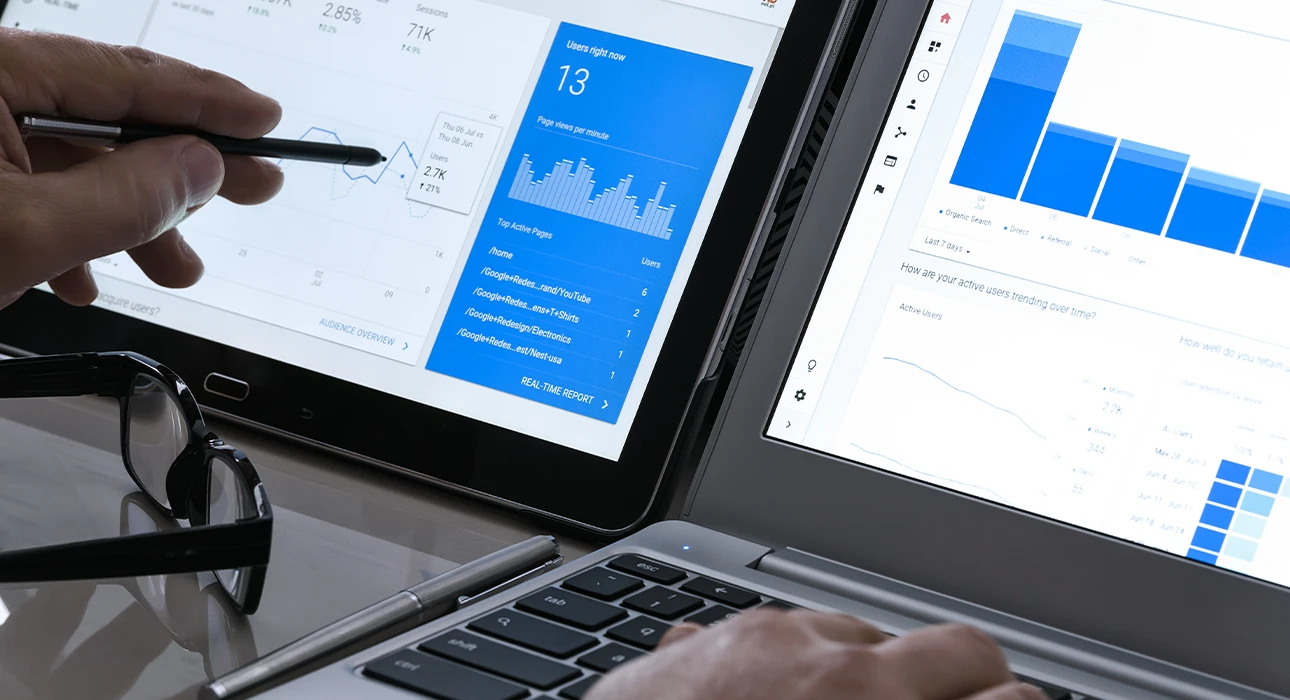Digital Marketing June, 2024
Results Analysis in Digital Marketing: The Secret to Online Success

In the world of digital marketing, results analysis is like a beacon that lights the way to success. Without it, navigating the turbulent waters of online marketing can be an arduous and uncertain task. But what is results analysis and why is it so crucial for your business?

What is Result Analysis in Digital Marketing?
Result analysis in digital marketing is the process of collecting, measuring, and interpreting data from your online marketing campaigns to evaluate their performance and identify opportunities for improvement. It’s like a medical check-up for your online business, revealing what is working well and what needs attention.
Imagine you are driving a car on an unknown road. Without a map or GPS, you wouldn’t know where to go or how to reach your destination. Result analysis is your map in the digital marketing world, guiding you in the right direction and helping you avoid obstacles.
Why is Result Analysis Essential for Your Business?
- Make Informed Decisions: Result analysis provides concrete data about your campaign performance, allowing you to make fact-based decisions rather than guesses. This increases your chances of success and reduces the risk of wasting time and money on ineffective strategies.
- Optimize Your Campaigns: By analyzing campaign data, you can identify what is working well and what needs improvement. This way, you can optimize your campaigns in real-time, adjusting your strategies to achieve better results.
- Measure Return on Investment (ROI): Result analysis allows you to measure the ROI of your digital marketing campaigns. Measuring ROI is crucial for justifying your marketing investments and demonstrating the value of your work to your company.
- Identify Growth Opportunities: By analyzing the data, you can discover new growth opportunities for your business. For example, you might identify new target audience segments, new keywords to explore, or new marketing platforms to utilize.
- Monitor Competitor Performance: Result analysis can also help you monitor your competitors' performance and identify their most effective marketing strategies.
- Personalize the Customer Experience: By analyzing customer behavior and preferences, you can personalize your communication and offers, increasing the relevance and impact of your campaigns.
- Continuous Improvement: Result analysis is an ongoing process that allows you to learn from your mistakes, adapting your strategies to achieve better and better results.
Statistics Demonstrating the Importance of Result Analysis
- Companies that use data to make marketing decisions are 5 to 8 times more likely to achieve a positive ROI. (McKinsey)
- 92% of marketers say that data analysis is crucial to the success of their campaigns. (Forbes)
- Companies that use data analysis to personalize the customer experience increase their revenue by 10% to 15%. (McKinsey)
- 64% of marketers say that data analysis is key to improving campaign performance. (Econsultancy)
Key Metrics to Analyze in Digital Marketing
In digital marketing, there are numerous metrics you can track, but some of the most relevant are:
- Website Traffic: The number of visitors your site receives. Analyze the traffic sources (organic, paid, social media, etc.), the most visited pages, and the time spent on the site.
- Conversion Rate: The percentage of visitors who complete a desired action, such as making a purchase or filling out a form. Identify the pages with the highest and lowest conversion rates to optimize your sales funnel.
- Cost per Acquisition (CPA): The average cost to acquire a new customer. Compare the CPA of different marketing channels to identify the most efficient ones.
- Return on Investment (ROI): The ratio between the profit generated and the investment made in marketing. Calculate the ROI of each campaign to evaluate its profitability.
- Email Open Rate: The percentage of people who open your marketing emails. Test different subject lines and sending times to optimize the open rate.
- Click-Through Rate (CTR): The percentage of people who clicked on a link in your emails or ads. Experiment with different calls to action and ad formats to improve the CTR.
- Social Media Engagement: The number of interactions with your social media posts, such as likes, comments, and shares. Analyze the type of content that generates the most engagement to create more effective posts.
- SEO Metrics: Track your search rankings, the number of backlinks, domain authority, and other relevant metrics to evaluate your SEO performance.
Result Analysis Tools
There are several result analysis tools available in the market, both free and paid. Some of the most popular are:
- Google Analytics: A free tool from Google that allows you to track your website traffic, user behavior, conversions, and other important metrics.
- Google Search Console: A free tool from Google that helps monitor your site's performance in Google search results.
- Facebook Insights: A free tool from Facebook that allows you to track the performance of your pages and posts on Facebook.
- Hootsuite Analytics: A paid tool that allows you to track the performance of your social media campaigns across multiple platforms.
- SEMrush: A paid tool that offers a wide range of features for SEO analysis, keyword research, competitor analysis, and much more.
Tips for Optimizing Your Result Analysis
- Set Clear Goals: Before you start analyzing your data, define your digital marketing objectives. What do you want to achieve with your campaigns?
- Track the Right Metrics: Identify the metrics that are most relevant to your goals and monitor them regularly.
- Use Analysis Tools: Utilize analysis tools to collect and interpret your data more efficiently.
- Test and Experiment: Don't be afraid to try new strategies and tactics. Use A/B testing to compare different approaches and identify what works best for your business.
- Learn from Your Mistakes: Not all campaigns will be successful. Analyze your mistakes and learn from them to improve your future campaigns.
- Segment Your Data: Analyze your data by different audience segments, marketing channels, and time periods to gain more detailed and actionable insights.
- Use Predictive Analysis: Use predictive analysis tools to identify trends and patterns in your data, allowing you to anticipate customer behavior and make proactive decisions.
- Share Results with Your Team: Share your analysis results with your team to ensure everyone is aligned with the marketing objectives and to promote a data-driven culture in your company.
Result analysis is an essential tool for success in digital marketing. By tracking and interpreting your campaign data, you can make informed decisions, optimize your strategies, and achieve your business goals. Don't underestimate the power of result analysis – it could be the key to unlocking the true potential of your online business.









